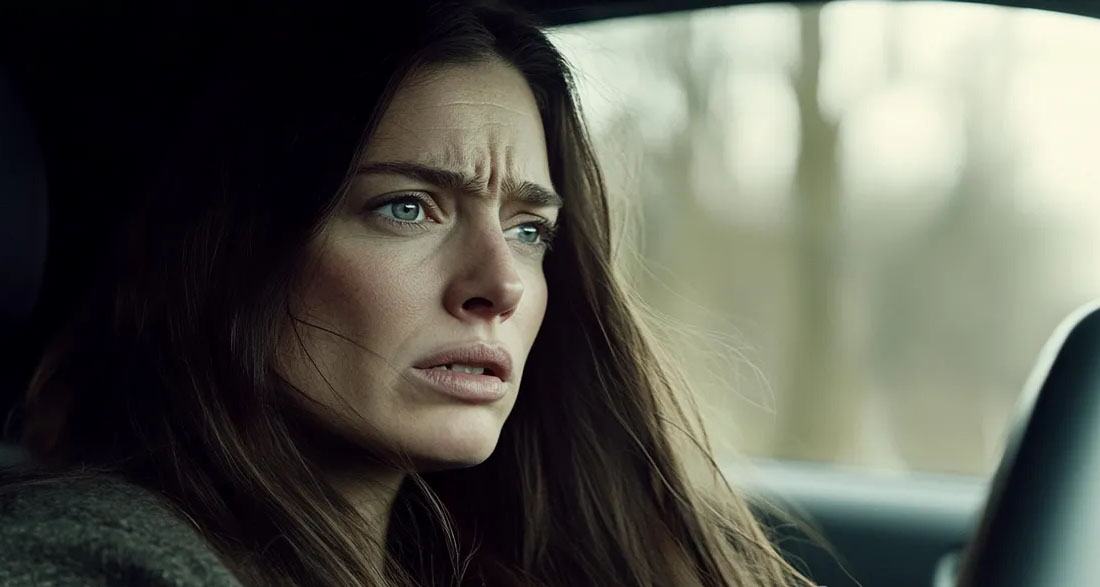I always thought my father’s will would secure my future. I never expected it to destroy everything I knew. But the moment the lawyer read out a name I had never heard before, my grandmother’s fury ignited like a wildfire.
Who was Brenna? And why had my father left her everything?
My life had always been ruled by discipline. Every morning, a strict voice echoed through our grand house.
“Sit up straight, Mona. Don’t slouch. A lady always keeps her composure.”
That was Loretta—my grandmother, my guardian, my shadow. After my mother died, she took control, molding me into the perfect image of our family legacy. Every detail of my life had to be pristine—my posture, my grades, even the way I folded napkins at the dinner table. Mistakes were not tolerated.
When my father passed away, I barely had time to grieve before Loretta shifted her focus to what mattered most to her: power and control. She was already outlining our next steps, ensuring that our name remained untarnished, that our wealth stayed within the right hands.
“You’ll invest the money wisely, Mona,” she had told me that morning before we went to the lawyer’s office. “Your father worked hard for this. We must honor his legacy.”
I believed her. She had always known best. So, as we sat in that cold, sterile office, I waited to hear my name, waited for my future to be set in stone.
The lawyer adjusted his glasses and cleared his throat. “As per your father’s wishes,” he said, flipping through the will, “his estate and financial assets will be passed to Brenna.”
Silence. The room seemed to shrink.
“Who!?” The word tumbled from my mouth before I could stop it.
The lawyer glanced at me, his expression calm but unreadable. “Brenna is your father’s other daughter.”
My breath caught. “Sister? I… I have a sister?”
“Impossible!” Loretta’s voice cracked like a whip. “This must be a mistake! My son couldn’t have left everything to some stranger!”
“It’s no mistake, ma’am. Your son provided clear instructions. Brenna inherits the house, accounts, and stocks.”
Loretta’s face twisted in outrage. “You’re telling me that some unknown child, someone we don’t even know, takes it all?”
I barely heard them. The words pounded in my head. A sister. I had a sister.
Loretta’s nails dug into my hand, pulling me back to reality.
“We’ll fix this, Mona. We’ll find this Brenna and make sure she does what’s right.”
Her tone sent a chill through me. I knew what she meant. We weren’t going to welcome Brenna. We were going to take back what we believed was ours. And defying Loretta had never been an option.
Days later, I found myself standing in front of a weathered little house, paint peeling from its siding, the roof slightly slanted as if it had given up the fight against time.
Before I could knock, the door creaked open, and there she was.
Brenna.
Her smile was wide and warm, her arms hanging loosely at her sides, her fingers twisting together in an odd, rhythmic pattern.
“Hi!” she said brightly, her voice almost musical. “I saw you coming. Did you park by the mailbox? It’s wobbly. I keep meaning to fix it, but…”
She trailed off, tapping the wooden doorframe three times with her knuckles.
“Uh, yeah,” I said awkwardly. “I’m Mona. Your sister.”
Her smile grew. “Come in!” she said, stepping aside. “Watch the floorboard near the kitchen. It squeaks.”
Inside, the house smelled of clay and earth. The narrow hallway led to a kitchen dominated by a long workbench covered in half-finished pottery pieces, jars of paint, and tools I couldn’t name.
Brenna rearranged a set of mismatched vases three times, muttering under her breath before nodding in satisfaction. Then she turned to me.
“You’re my sister.”
“Yes,” I said cautiously. “Our father… he passed away recently.”
Her expression didn’t falter. “What was he like?” she asked.
“He was kind. He cared. We were friends.”
She nodded. “I never met him. But I have his hands.” She held them up, fingers stained with dried clay. “Mom always said so.”
Her sincerity disarmed me. I had expected resentment, or at least suspicion. Instead, she radiated quiet acceptance.
“Dad left me a gift,” she said suddenly.
“A gift?” I repeated, confused.
“That’s what the letter said. Did he leave you a gift too?”
I hesitated, Loretta’s words ringing in my ears. “Not really.”
Brenna frowned. “That’s strange. Everyone should get a gift.”
A week. That was how long I stayed in that house, and in those seven days, I learned more about myself than I had in years.
Brenna saw the world differently. She found joy in small things—the way the morning light hit the lake, the sound of clay shaping beneath her fingers, the quiet peace of simply being.
She didn’t rush. She didn’t demand. She just lived.
When Loretta called, her voice was sharp. “Mona, stop wasting time. That girl doesn’t understand the value of money. Convince her to sign it over.”
I gripped the phone tighter.
“She’s naive, Mona. Use her trust if you have to.”
The words made me sick.
The next morning, Loretta arrived unannounced, her presence slicing through the house like a blade.
“Mona, end this nonsense,” she snapped. “She doesn’t deserve our family’s legacy.”
Brenna froze, her hands trembling. “Gift, gift,” she whispered.
In that moment, I saw the truth. Loretta had stolen everything from my father—his choices, his love, even his other daughter. And now, she was trying to take from me, too.
I turned to Brenna. “I’m staying.”
Loretta’s fury meant nothing anymore. Because for the first time, I was choosing my own life.
Brenna’s face lit up. “Pancakes?” she asked softly.
I laughed. “Yeah. Let’s make pancakes.”
And as the sun dipped low, we sat together on the porch—not as strangers, not as rivals, but as sisters. Finally, as family.














